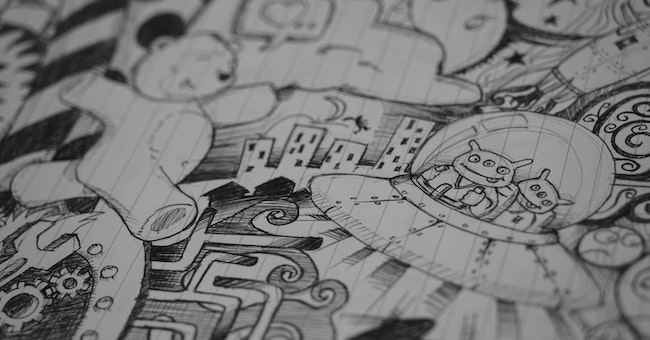Exploring Ways to Relieve Psychological Stress

What is Psychological Stress?
Psychological stress is the body and brain’s response to any need or demand that it sees as a challenge or obstacle. It is not necessarily negative, as some people see short-term stress as motivating, as with an exam or job interview. Stress can be caused by different types of stressors such as routine stress, sudden negative stress, and traumatic stress
Causes of Psychological Stress Nowadays
In today's fast-paced and interconnected world, there are several common sources of psychological stress that many people experience. These sources can vary depending on individual circumstances and life situations. Here are some common sources of psychological stress nowadays:
Work-related Stress: Excessive workload, long working hours, high expectations, deadlines, conflicts with colleagues or superiors, and job insecurity can contribute to work-related stress.
Financial Pressure: Financial challenges such as debt, unemployment, job instability, high living costs, and financial obligations can create significant stress and anxiety.
Relationship Issues: Difficulties in personal relationships, conflicts with family members, friends, or romantic partners, and lack of social support can lead to psychological stress.
Technology and Information Overload: The constant exposure to technology, social media, and the 24/7 news cycle can create a sense of information overload, leading to feelings of overwhelm and pressure to stay connected and up-to-date.
Academic Pressure: Students often experience stress due to academic demands, performance expectations, exams, deadlines, and the pressure to excel academically.
Health Concerns: Managing chronic illnesses, dealing with physical health issues, or caring for a loved one with health problems can contribute to psychological stress.
Social Pressures: Social expectations, peer pressure, comparison to others, and the fear of judgment or rejection can create stress and impact self-esteem.
Life Transitions and Uncertainty: Major life transitions, such as starting a new job, moving to a new city, getting married, or having a baby, can bring about stress due to the adjustment required and uncertainties associated with change.
Global Events and Uncertainty: Worldwide events such as pandemics, political instability, natural disasters, or economic fluctuations can generate stress and anxiety about the future.
Personal Expectations and Self-Criticism: Setting high standards for oneself, striving for perfection, and engaging in self-criticism can lead to stress and feelings of inadequacy.
Symptoms of Psychological Stress
Some of the more common physical, psychological, and emotional signs of chronic stress include rapid heart rate, elevated blood pressure, feeling overwhelmed, fatigue, difficulty sleeping, poor problem-solving, fear that the stressor won’t go away, persistent thoughts about one or more stressors, changes in behavior including social withdrawal, feelings of sadness, frustration, loss of emotional control, inability to rest and self-medication.
Common Ways to Relieve Psychological Stress
When it comes to relieving psychological stress, different techniques work for different individuals. Here are some common and effective ways to alleviate and manage psychological stress:
Exercise: Engaging in physical activity, such as walking, jogging, or yoga, releases endorphins, which are natural mood boosters and stress reducers. Regular exercise helps reduce anxiety, improves sleep, and promotes overall well-being.
Practice Relaxation Techniques: Deep breathing exercises, meditation, mindfulness, and progressive muscle relaxation can help calm the mind, reduce stress levels, and promote a sense of inner peace and relaxation.
Connect with Others: Social support is crucial for managing stress. Talking to friends, family, or a support network can provide a sense of belonging, understanding, and comfort. Sharing your feelings and concerns can help alleviate stress and gain different perspectives.
Engage in Hobbies and Activities: Participating in activities you enjoy, such as painting, reading, gardening, or playing a musical instrument, can divert your focus from stressors and provide a sense of pleasure and relaxation.
Maintain a Healthy Lifestyle: Nourish your body with a balanced diet, adequate sleep, and regular sleep patterns. Avoid excessive consumption of caffeine, alcohol, and unhealthy coping mechanisms like smoking or substance abuse, as they can exacerbate stress.
Time Management and Prioritization: Organize your tasks, set realistic goals, and manage your time effectively. Prioritizing and breaking down tasks into smaller, manageable steps can help reduce overwhelm and stress.
Practice Self-Care: Dedicate time for self-care activities that promote relaxation and well-being. This can include taking a warm bath, practicing self-compassion, journaling, listening to music, or engaging in activities that bring joy and relaxation.
Seek Support: If stress becomes overwhelming or persistent, don't hesitate to reach out for professional help. A therapist or counselor can provide guidance, support, and coping strategies tailored to your specific needs.
Limit Exposure to Stressors: Identify sources of stress in your life and take steps to minimize exposure. This may involve setting boundaries, saying no to excessive commitments, and creating a supportive and nurturing environment.
Practice Positive Thinking: Challenge negative thoughts and replace them with positive and realistic ones. Cultivating a positive mindset and gratitude can help reduce stress and promote emotional well-being.
Remember that finding effective stress relief techniques may require some experimentation to identify what works best for you. It's essential to incorporate these strategies into your daily routine to manage stress proactively and promote overall mental well-being.
Recommended Online Resources for Better Managing Psychological Stress
Welcome to the course "Complete Stress Management," where you will embark on a journey of self-awareness and learn effective techniques to eradicate stress. Discover how to navigate your day with a calm and relaxed mindset, create space between stressors and your reactions, and develop emotional strength to face new challenges. No fancy technology or superfood required, just your own awareness and actionable steps to access the peace you crave.
Course highlights:
Identify common stressors
Learn practical techniques
Practice actionable steps
Develop emotional strength
Access inner peace
Stress & Anxiety Management: Psychology - ACCREDITED CERT
This comprehensive course explores the psychology of stress and anxiety disorders, equipping you with effective strategies for managing these conditions. From understanding various anxiety disorders to learning therapeutic techniques and medication options, you will gain valuable knowledge to self-manage and support others in coping with stress and anxieties. The course is fully accredited by the IAOTH, ensuring a recognized certification upon completion.
Course highlights:
Gain valuable knowledge on the psychology of stress and anxiety disorders.
Learn effective techniques to manage your own stress and anxiety.
Understand important topics such as Generalized Anxiety Disorder, Social Anxiety Disorder, and Burnout.
Discover therapeutic practices, medication options, and breathing techniques to reduce panic and anxiety.
Earn a fully accredited certificate upon completion from the IAOTH - International Association of Therapists.
Psychology of Anxiety and Stress Management
With an estimated 275 million people suffering from anxiety disorders worldwide, it's crucial to understand how to effectively manage stress and anxiety. This course explores various treatments used by professional psychologists to improve mental health. From defining stress to examining its causes and risk factors, to exploring stress management techniques and the role of exercise, this course provides practical insights into the psychology behind stress. Whether you're seeking personal well-being or professional development, this course is designed to equip you with valuable knowledge in anxiety and stress management.
Course highlights:
Learn how to effectively manage stress and anxiety to improve mental health.
Understand the primary causes and risk factors associated with stress.
Explore practical stress management techniques through real-life scenarios and examples.
Discover the role of exercise in managing stress and anxiety disorders.
Gain insights into psychiatric options and advanced treatment techniques for severe stress and anxiety.
Conclusion
In conclusion, exploring ways to relieve psychological stress is an essential step towards maintaining mental well-being in today's fast-paced world. By understanding the sources of stress and adopting effective stress management techniques, individuals can significantly reduce the negative impact of stress on their lives. Whether it's practicing mindfulness, engaging in physical activity, seeking social support, or pursuing hobbies and relaxation techniques, there are various paths to finding inner peace and balance. Remember, taking care of your mental health is a lifelong journey, and by implementing these strategies, you can lead a happier and more fulfilling life.




